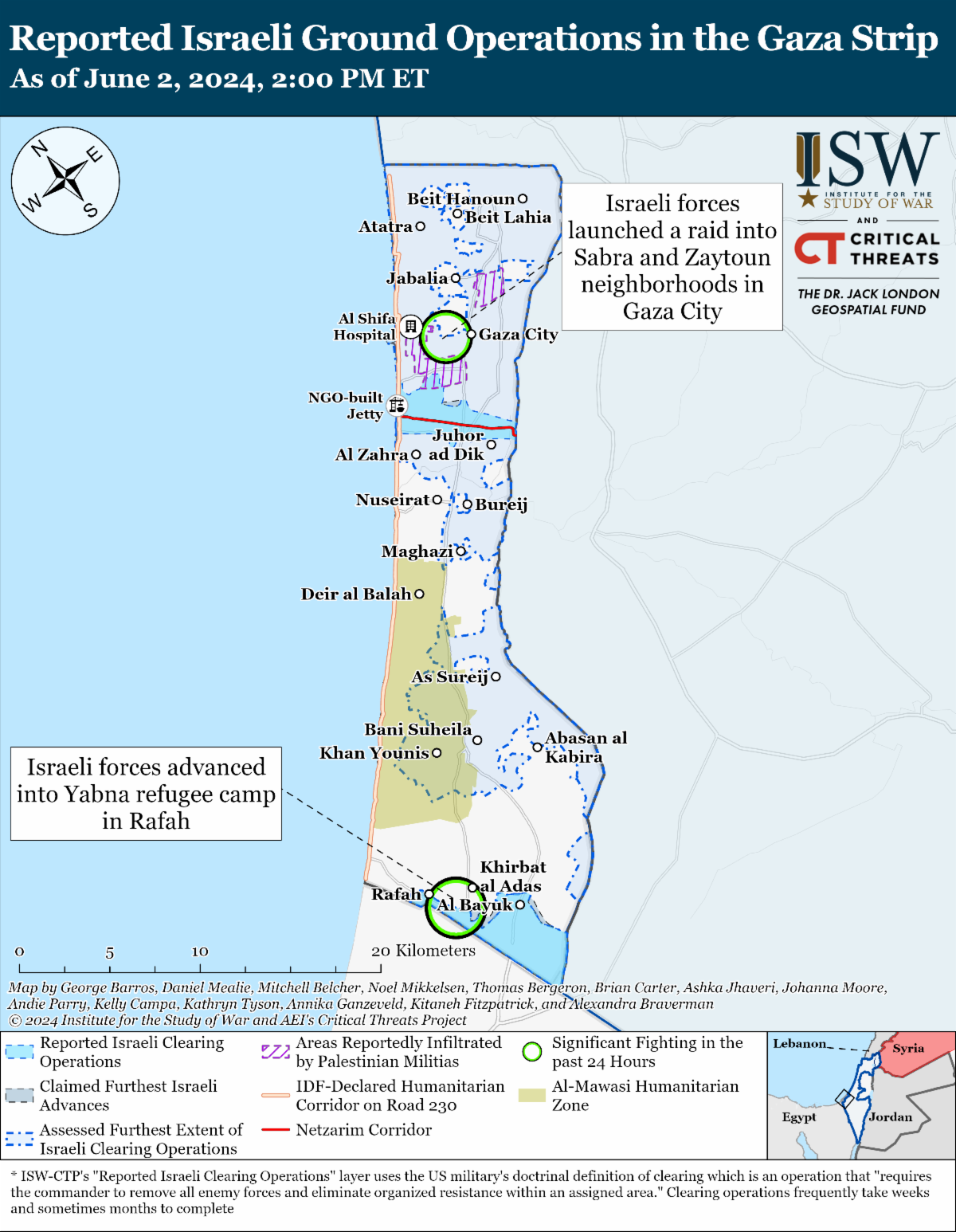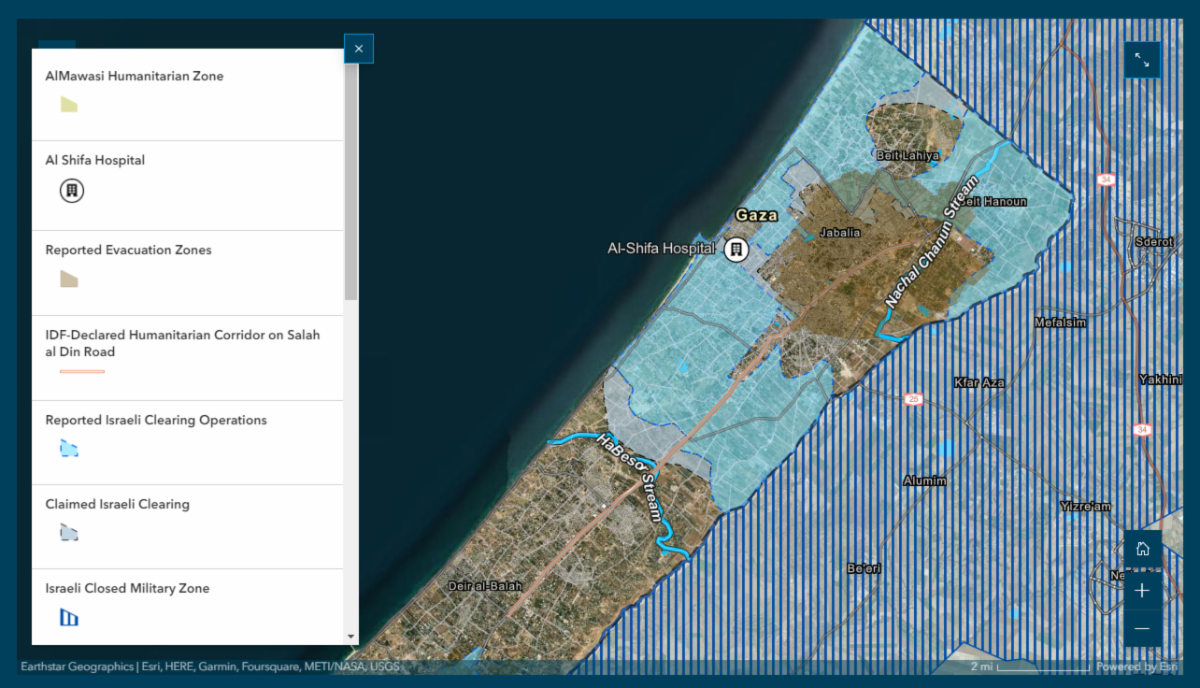Unspecified US and Israeli officials said that Israel adjusted its military operations in Rafah to avoid crossing the US Joe Biden administration’s red lines. Israel originally planned to deploy two divisions to conduct clearing operations in Rafah. The United States expressed concern that such action could increase civilian casualties significantly. President Biden said on May 8 that the United States will stop supplying Israel with certain weapons if Israel conducts a major military operation into Rafah. The latest reporting is consistent with other reports that Israel was planning a limited attack targeting Hamas in Rafah and that the IDF is moving “more deliberately” in Rafah.
Hamas stated on May 31 that it is willing to engage "positively and constructively" with the latest Israeli ceasefire proposal, so long as it meets Hamas’ maximalist demands. Hamas restated that its demands are a permanent ceasefire, the withdrawal of Israeli forces from the Gaza Strip, the reconstruction of the Gaza Strip, the return of displaced Palestinians, and a “genuine” prisoner swap deal. Hamas was responding to a speech on May 31 from US President Joe Biden, who urged Hamas to accept the latest Israeli ceasefire proposal. The proposal outlines three phases that include the withdrawal of Israeli forces and a permanent ceasefire. Biden did not specify how many Israeli hostages or Palestinian prisoners would be released in this proposal, nor did he specify the length of phases two and three. Hamas’ response to the speech does not necessarily reflect a change in its position.
US officials stated that Biden's speech aimed to garner international support for the proposal and increase pressure on Hamas to accept the deal. Biden warned that Hamas’ rejection of the proposal could lead to an escalation of the war. A senior US official mentioned that the proposal is "nearly identical" to one presented by Hamas three weeks prior. The United States, Qatar, and Egypt published a joint statement on June 2 calling for Israel and Hamas to agree to the ceasefire proposal that Biden referenced in his speech.
Israel confirmed on June 1 that it agreed with the framework of the ceasefire proposal that President Biden described. Ophir Falk, who is a senior adviser to Israeli Prime Minister Benjamin Netanyahu, confirmed that Israel approves the deal but also noted that a permanent ceasefire would only be possible once Israel achieves all its war aims. US officials expressed optimism, noting that Israel did not oppose Biden's speech or dispute that it accurately reflected the latest Israeli proposal.
Key Takeaways:
- Gaza Strip: Israeli forces launched a raid targeting Palestinian militias in Sabra and Zaytoun neighborhoods of Gaza City.
- Political Negotiations: Hamas stated that it will engage the latest Israeli proposal constructively, so long as the proposal meets Hamas’ maximalist demands.
- West Bank: Israeli forces engaged Palestinian fighters in eight locations across the West Bank.
- Southern Lebanon and Golan Heights: Lebanese Hezbollah conducted 11 attacks into northern Israel.
- Iraq: The Islamic Resistance in Iraq claimed a drone attack targeting Israel.
- Yemen: The Houthis claimed six drone and missile attacks targeting commercial and US naval vessels.
| 






 [ISW] 이스라엘-하마스 전쟁 (이란) 업데이트, 2024년 6월 14일
[ISW] 이스라엘-하마스 전쟁 (이란) 업데이트, 2024년 6월 14일
 [ISW] 이스라엘-하마스 전쟁(이란) 업데이트, 2024년 5월 29일
[ISW] 이스라엘-하마스 전쟁(이란) 업데이트, 2024년 5월 29일